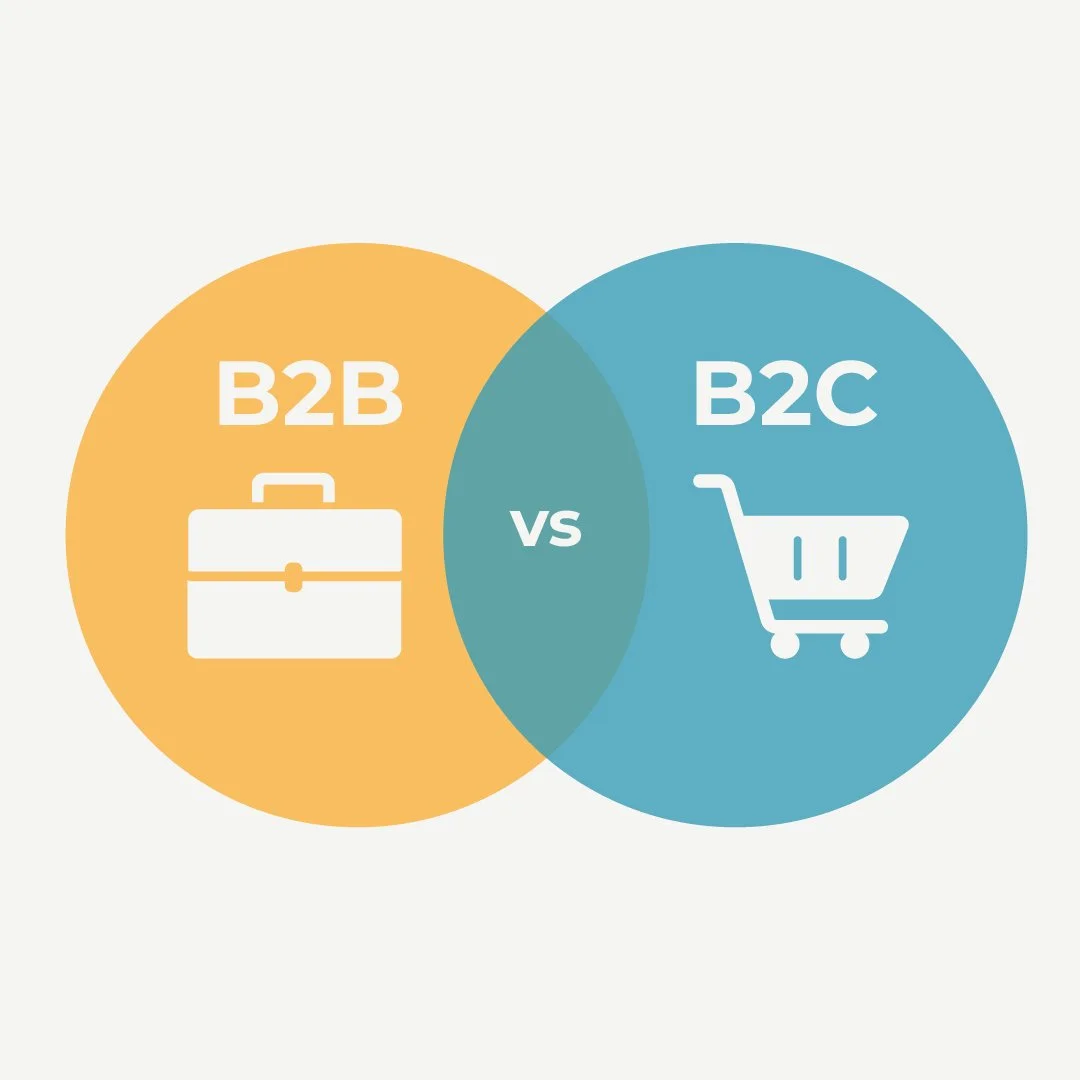5 Key Differences Between B2B and B2C Marketing You Shouldn’t Ignore
July 2025
If you've ever wondered why your consumer marketing playbook doesn't quite work when trying to reach businesses, you're not alone. Business-to-business (B2B) and business-to-consumer (B2C) marketing might seem similar, but they're very different beasts. Here are five key differences to consider when designing your marketing strategy.
1. Decision-making speed and complexity
Consumer purchases happen fast. A customer might see a product on Instagram, read a few reviews, and buy it within hours or days. Business purchases? That's a whole different story.
In B2B, you deal with buying committees, approval processes and budget cycles that can stretch for months. A software purchase might involve the IT department, the finance team, department heads and the C-suite. Each stakeholder has different priorities and concerns your marketing needs to address.
2. Emotional vs. rational triggers
B2C marketing often targets emotions. Think about Nike's "Just Do It" tagline or Coca-Cola's “Open Happiness” and “Taste the Feeling” campaigns. These brands want you to feel something, then act on that feeling.
B2B marketing still involves emotions, but they're different ones. Business buyers worry about their reputation, job security and company success. They need to justify their decisions with data, ROI calculations and risk assessments. Your messaging should acknowledge these concerns while still connecting on a human level.
3. Relationship building vs. transaction focus
Most consumer purchases are transactional. You buy a pair of shoes, use them and maybe buy the same brand again. The relationship is pretty casual.
B2B marketing is all about relationships. You're often selling ongoing services, long-term contracts or products that require implementation and support. Your prospects want to know they can trust you for the long haul. This means your marketing should focus on building credibility, demonstrating expertise and nurturing leads over time rather than surface-level engagements and transactions.
4. Content depth and educational value
Consumer marketing content can be light and entertaining. That’s not to say it shouldn’t be thoughtful and compelling, but a quick video showing your product in action might be all you need.
B2B buyers demand detailed information. They want whitepapers, case studies, webinars and other technical content. They're researching extensively before making contact with sales. Your content needs to educate, not just promote. Think of yourself as a consultant, not just a vendor.
5. Sales cycle integration
In B2C, marketing often handles the entire customer journey. Someone sees your ad, visits your website and makes a purchase without talking to a salesperson.
B2B marketing and sales are joined at the hip. Marketing typically generates and nurtures leads, then sales teams handle the final push. This requires transparency, consistent communication and shared goals between the agency and client.
Getting it right
The key to success in either space is understanding your audience well. B2C marketers need to tap into individual motivations and desires. B2B marketers need to understand business challenges, organizational dynamics and decision-making processes.
Neither approach is better than the other, but they do require different strategies, content and metrics. The companies that thrive recognize these differences and adapt their approach accordingly.
Whether marketing to consumers or businesses, remember that you're always marketing to people. The context might be different, but human psychology still matters. The most effective marketing speaks to both the logical and emotional sides of decision-making, regardless of whether that decision happens at home, in the store, over a Zoom call or in the office.

